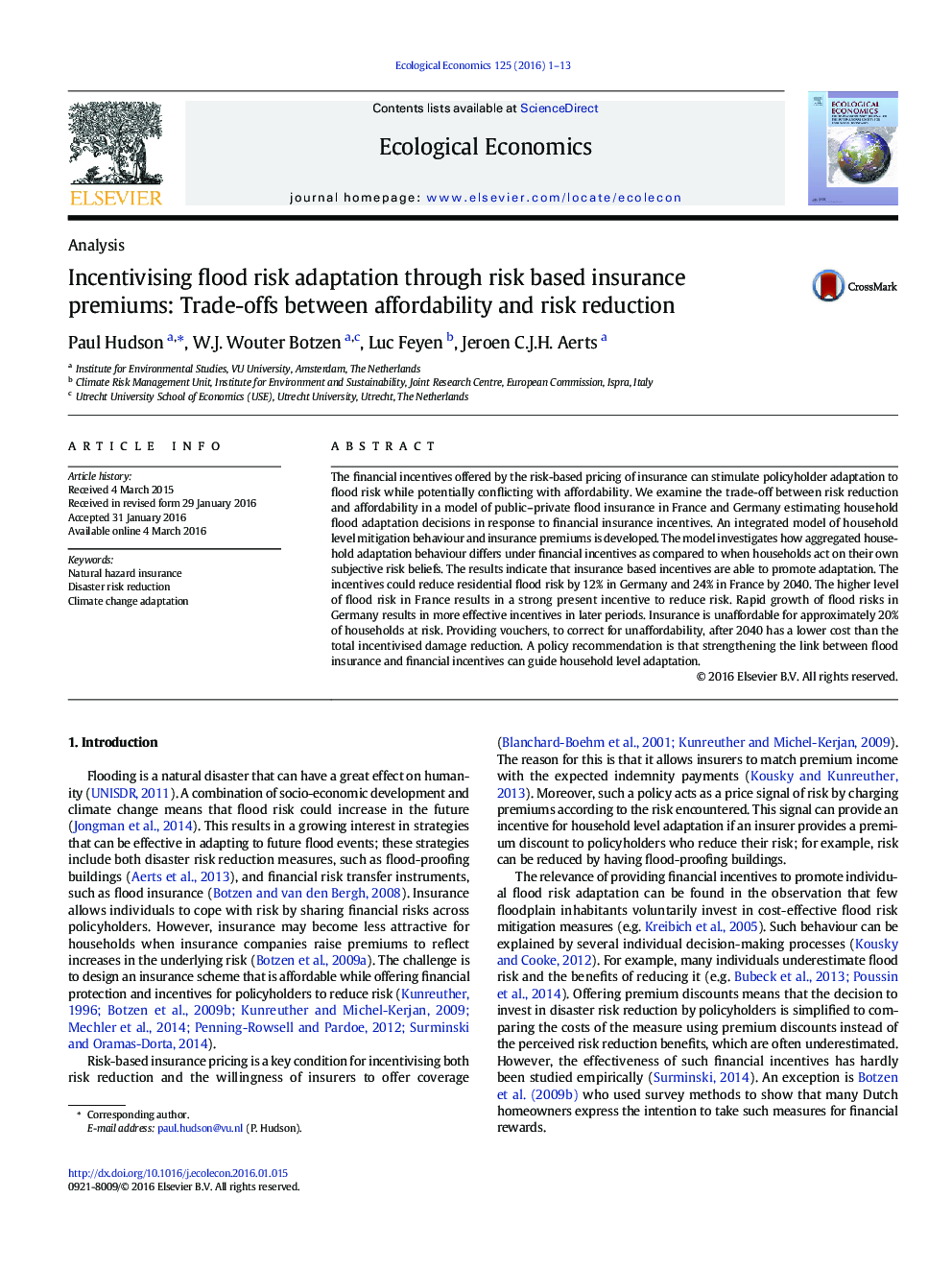| Article ID | Journal | Published Year | Pages | File Type |
|---|---|---|---|---|
| 5049037 | Ecological Economics | 2016 | 13 Pages |
The financial incentives offered by the risk-based pricing of insurance can stimulate policyholder adaptation to flood risk while potentially conflicting with affordability. We examine the trade-off between risk reduction and affordability in a model of public-private flood insurance in France and Germany estimating household flood adaptation decisions in response to financial insurance incentives. An integrated model of household level mitigation behaviour and insurance premiums is developed. The model investigates how aggregated household adaptation behaviour differs under financial incentives as compared to when households act on their own subjective risk beliefs. The results indicate that insurance based incentives are able to promote adaptation. The incentives could reduce residential flood risk by 12% in Germany and 24% in France by 2040. The higher level of flood risk in France results in a strong present incentive to reduce risk. Rapid growth of flood risks in Germany results in more effective incentives in later periods. Insurance is unaffordable for approximately 20% of households at risk. Providing vouchers, to correct for unaffordability, after 2040 has a lower cost than the total incentivised damage reduction. A policy recommendation is that strengthening the link between flood insurance and financial incentives can guide household level adaptation.
